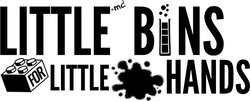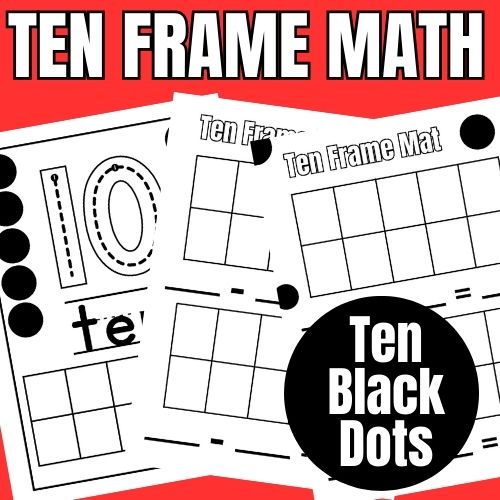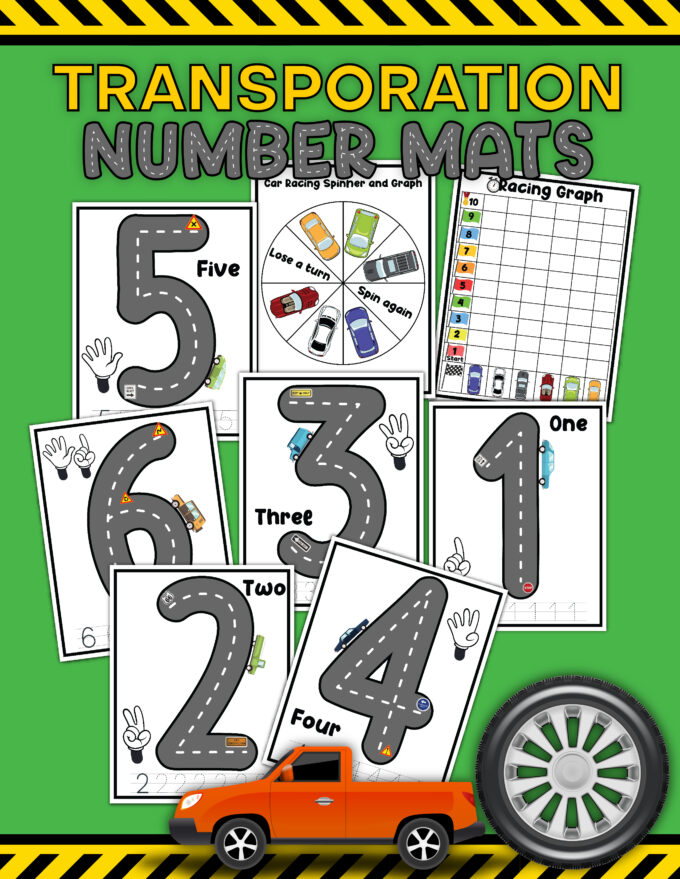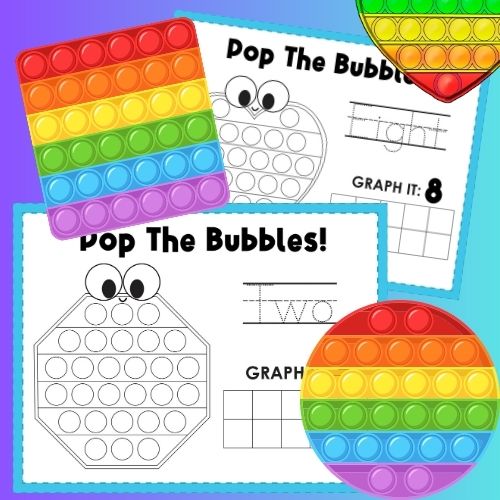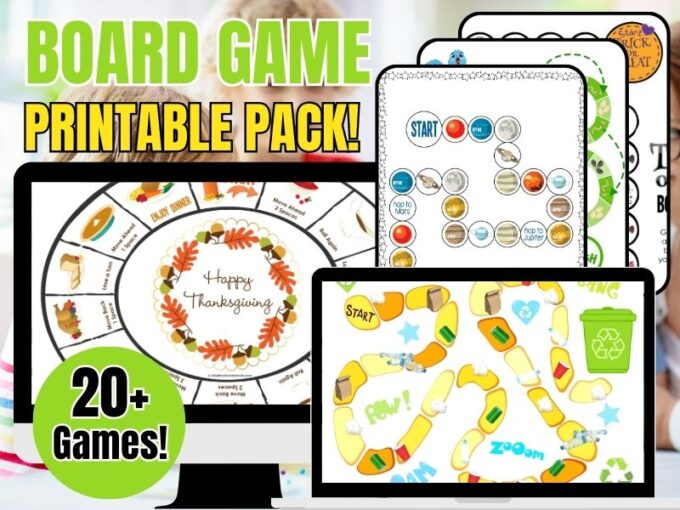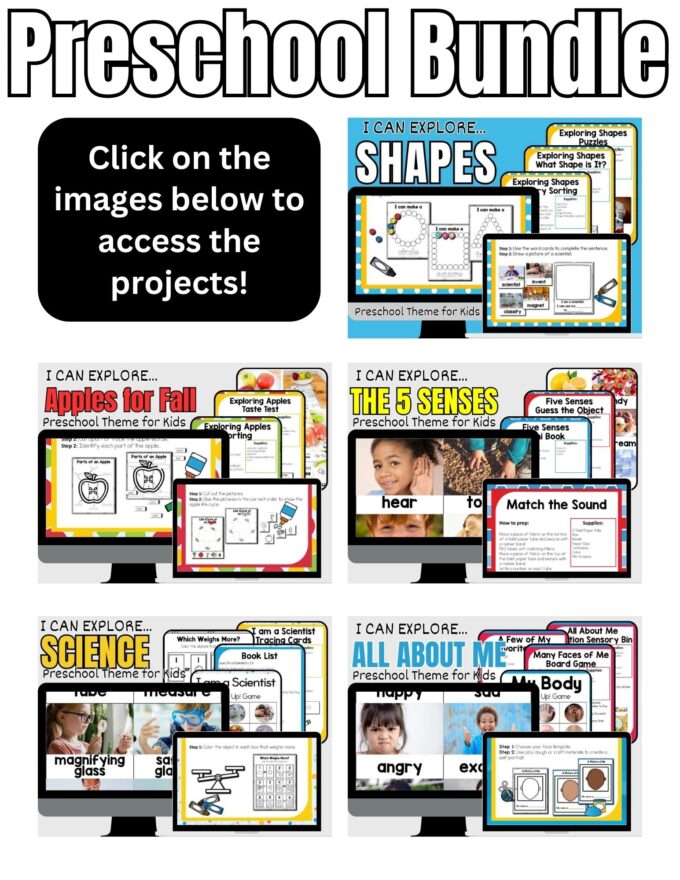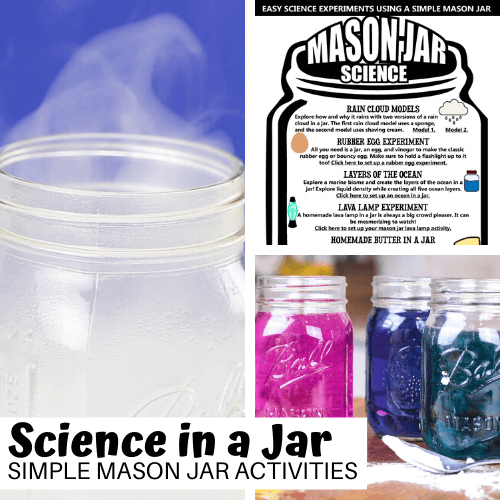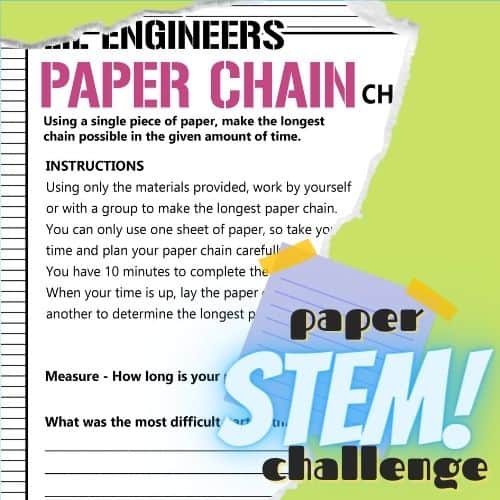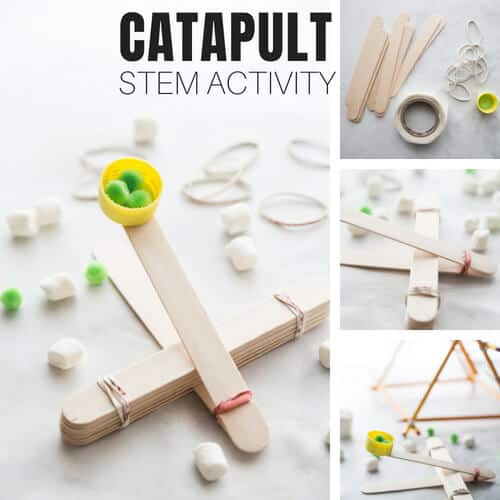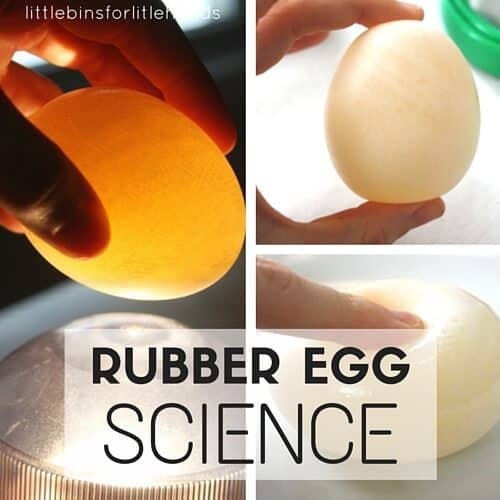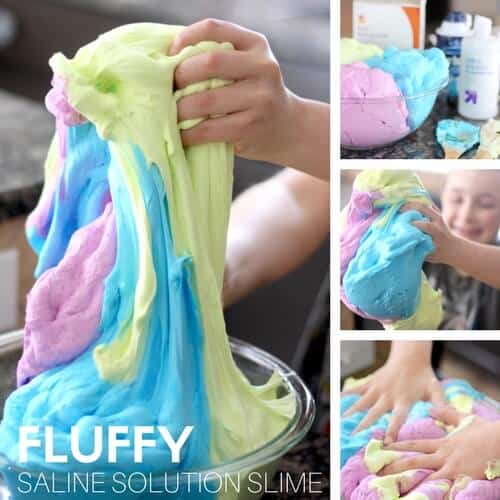Preschool math activities explore counting, number recognition, one-to-one correspondence, comparing items, learning shapes, and more. You can do this with simple hands-on math activities to make everyone smile. Use playful activities to explore early math concepts with young kids. Repetition is one of the key elements to success, and finding unique ways to keep the same material fresh and exciting is essential. Check out our simple ways to practice preschool math every day.
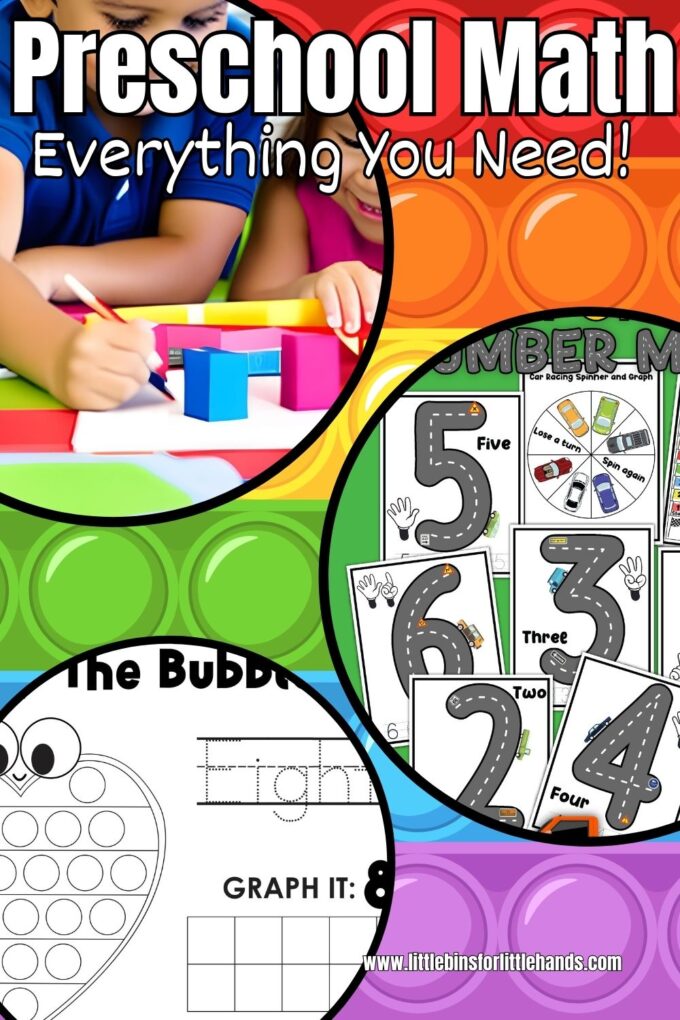
Introducing preschoolers to math early on lays a crucial foundation for their lifelong learning journey. Through playful exploration and interactive activities, preschool math aims to instill a sense of curiosity and confidence in young minds regarding numbers, shapes, and patterns.
Browse our Preschool Learning Activities, including science, art, and STEM!
Children develop essential skills and problem-solving abilities for future math concepts and life skills by creating a positive view of math.
Remember, repetition of these early math concepts is crucial, so why not use the seasons and holidays to make them extra special, too?
What’s a fun activity for preschool math… How about Color-By-Number? Number recognition, spatial awareness, colors… Try this pirate color by number. Tip: highlight the name of the colors with the colors to get started.
Preschool Math Activities
Depending on the specific math activity, spatial reasoning is woven into the concepts such as using a ten frame or creating a pattern!
Counting:
Children learn to count numbers in sequence, usually up to 10, if not more. They understand that counting represents quantity. You don’t have to have a specific activity set up to practice counting! Count your cookies; count the crayons; count the cups in the cupboard!
Book: “Ten Black Dots” by Donald Crews
Activity: Counting and Arranging Dot Art. Benefit: Develops counting skills, spatial reasoning, and creative thinking. Also, grab these Black dot themed ten frame sheets!
Number Recognition:
Children learn to recognize and identify numbers numerically (1, 2, 3, etc.) and in word form (one, two, three, etc.). Try these number road maps with a fun game!
One-to-One Correspondence:
This refers to the understanding that each counted object corresponds to one number word. For example, when counting a set of objects, each object gets assigned one number word. Try this free bubble pop activity.
Basic Shapes:
Preschoolers are introduced to basic shapes like circles, squares, triangles, and rectangles. They might also learn to identify these shapes in their environment. Try the shape activities below!
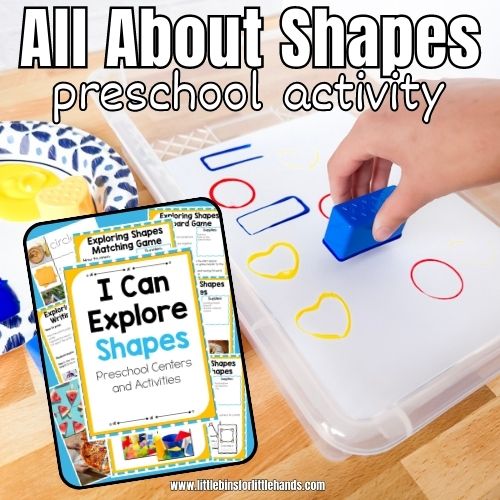
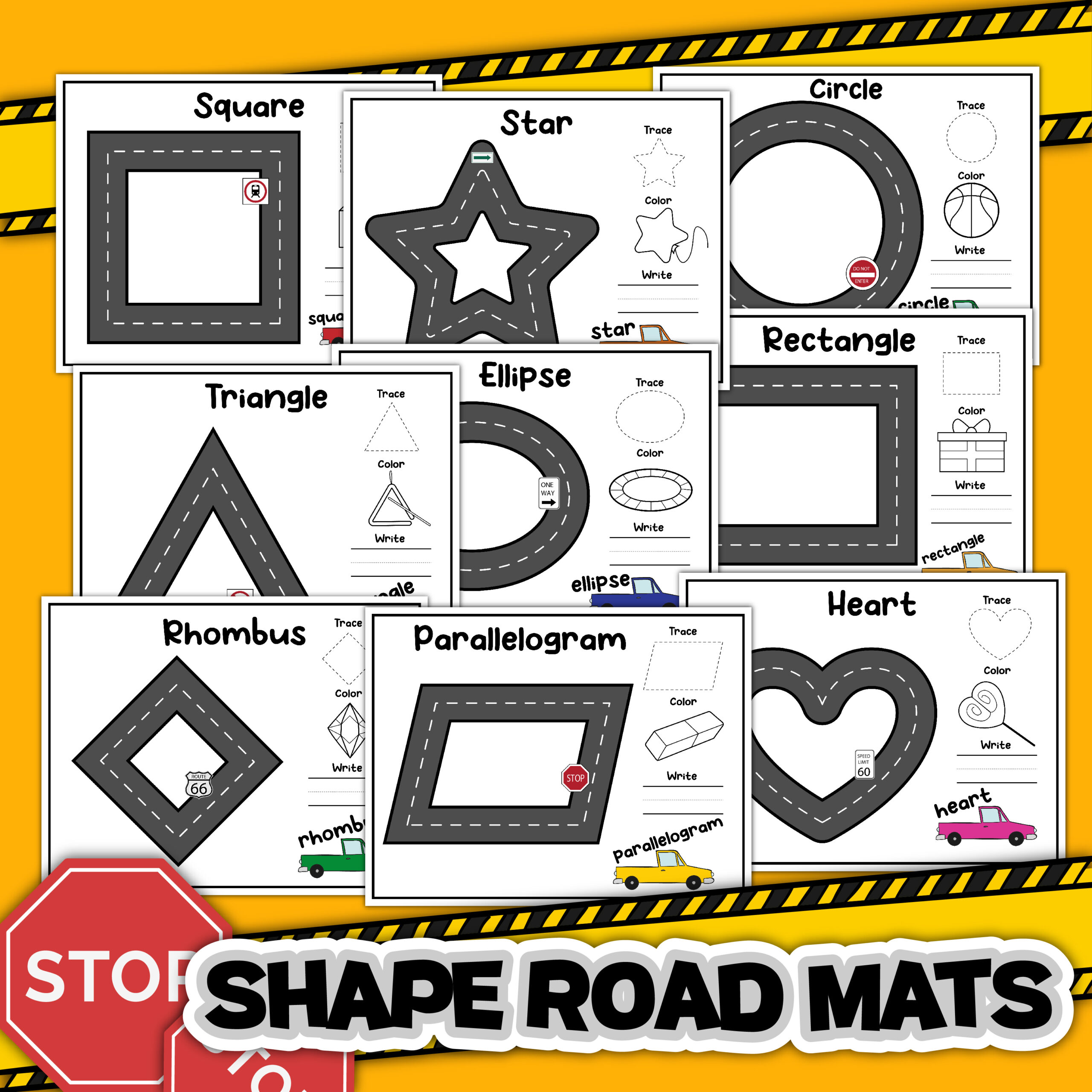
Patterns: Children learn to recognize and create simple patterns, such as repeating colors or shapes in a sequence.
Comparisons: Preschoolers begin to understand concepts like “more,” “less,” “bigger,” and “smaller.” They might compare the sizes of different objects. Explore volume with water and containers.
Measurement: Basic measurement concepts are introduced, such as longer/shorter and taller/shorter. This can involve comparing the length or height of objects.
Sorting and Classifying: Children learn to sort objects into categories based on attributes like color, size, shape, or type.
Sequencing: Children practice putting events or objects in order, which helps develop their understanding of sequence and order.
Money Awareness: Some preschool math programs might introduce very basic concepts related to money, such as understanding that coins have different values.
Printable Board Game Pack
Practice counting, one-to-one correspondence, spatial awareness, turn-taking, and more! Our various printable board games offer many early learning opportunities. You can always add a die for more math practice.
Printable Preschool Bundle Theme Pack
Get ready to explore this year with our growing Preschool STEM Bundle!
What’s Included:
There are five fun preschool themes to get you started. This is an ” I can explore” series!
Each unit contains approximately 15 activities, with instructions and templates as needed. Hands-on activities are provided to keep it fun and exciting. This includes sensory bins, experiments, games, and more! Easy supplies keep it low cost and book suggestions add the learning time.
